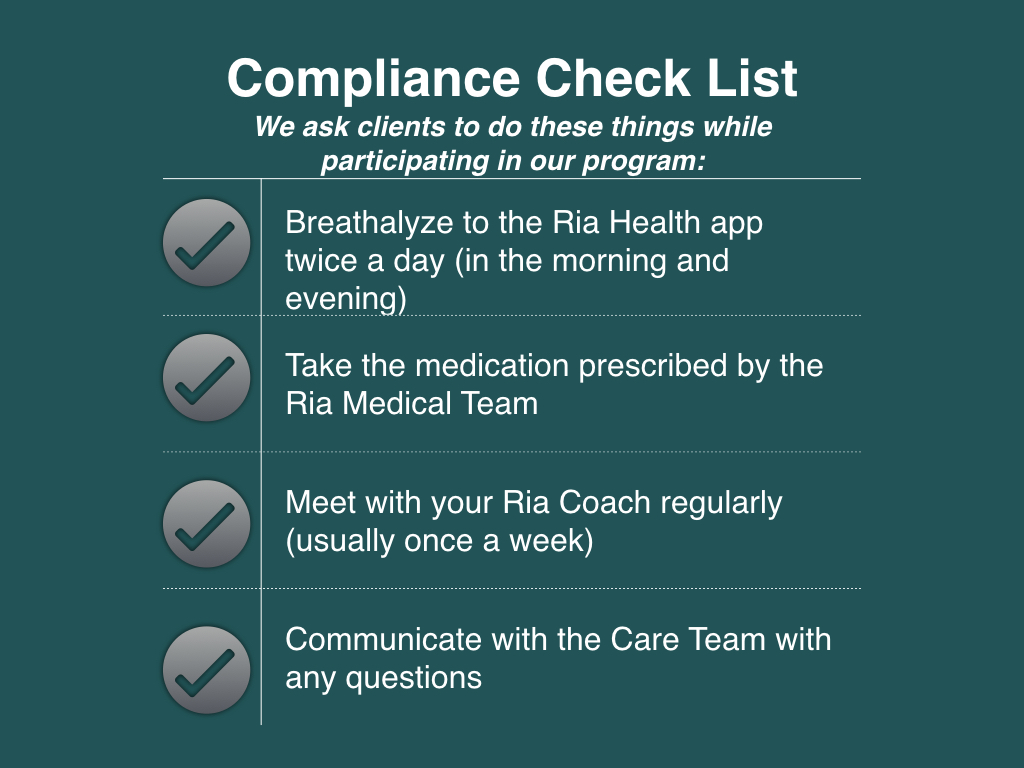5 Common Questions from Ria Health Members’ Friends and Family
Is your loved one a Ria Health member, or thinking of becoming one? If so, you might have some questions about our program. Here are answers to some of the most common questions we get from our members’ loved ones. You can watch Ria Health Registered Recovery Coach Sara Miller answer these questions in the video below, or read a brief overview of her answers.
1. Is it alright for my loved one to keep drinking?
Ria Health uses a modern approach to problematic drinking called harm-reduction (as opposed to abstinence), which involves medication-assisted treatment (MAT) to help people reach their drinking goals. Through MAT, people are able to decrease the amount of alcohol they drink over time. Your loved one may decide that abstinence is the right decision for them after successfully reducing their drinking.
2. Shouldn’t my loved one stop drinking if we know they have a drinking problem?
Alcohol Use Disorder (AUD) is tricky. Drinking heavily over a period of time—as little as a few months—will change your body’s and brain’s response to alcohol. When someone goes from drinking regularly to complete abstinence, they may experience a range of withdrawal symptoms. These problematic symptoms can range from repetitive intrusive thoughts (aka “cravings”), insomnia, tremors, seizures, and many more very uncomfortable and sometimes life-threatening problems.
In an attempt to avoid putting your loved one through any unnecessary suffering as they address their drinking habits, our medical team advises clients to start with medication and moderation management techniques as a way of moving toward abstinence or controlled drinking.
3. Is it a reflection on me that my loved one can’t stop drinking?
Nope, nope, nope. Supporting someone with AUD can be frustrating at times, so please reach out if you’re feeling overwhelmed at anytime during this process. You can check out the homepage of the Ria Health app for self-care resources.
4. Will my loved one have to stay on the medication prescribed in this program indefinitely?
It’s recommended that people who wish to continue drinking moderately also continue taking the medication as prescribed. If your loved one decides to become abstinent, they may no longer need to take the medication.
5. I do not want my loved one to drink at all. Any ideas on how we can compromise while they are part of the Ria Health program?
It’s completely understandable that you want alcohol out of the equation, especially if it’s caused frustration and grief in your relationship. Think of this program like a weight loss or training program. While most people wouldn’t expect someone who’s 40 pounds overweight to just stop eating for a while, it’s common for people to expect those with alcohol problems to just stop drinking (for a while, or forever).
Going through periods of restriction with food or alcohol will actually make cravings more intense and harder to work through. This is why people often fail at both abstinence-based recovery programs and super restrictive diets.
Instead of focusing on the presence or absence of drinking, help your loved one stay compliant with the treatment plan laid out by the Ria Health medical team. Check out the “Compliance Checklist” below for details about what Ria Health asks of its members.
You can also try to compromise. For example, agree upon a blood alcohol content (BAC) reading that your loved one will try and stay below for the week. If their readings were around, say, 0.1 the week before, a realistic goal would be to stay below 0.09 all week. Creating achievable goals is a crucial part of the Ria Health program.

Will insurance cover treatment? Verify Coverage
Have Questions? Call (800) 504-5360



